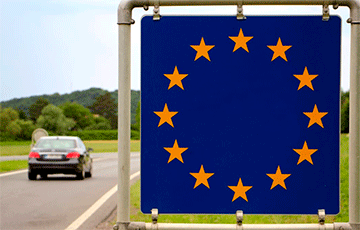Belarusians To Enter European Union Under New Rules
10- 11.09.2024, 8:42
- 33,534

What will change from November 10?
In two months' time the European Union plans to launch an automatic entry and exit registration system at the external borders of the Schengen area.
One of the main innovations is the Entry Exit System (EES). As soon as it works, no more stamps will be put in passports, writes ‘Nasha Niva’.
The new Entry Exit System (EES) is supposed to start working at all external borders of the EU from November 10, 2024. Its implementation has already been postponed several times. The creation of the EES was agreed back in late 2017. It was originally planned to launch it in May 2022, then the deadline was postponed to May 2023 and the end of 2023.
How It Works
The Entry Exit System is an automated registration system for citizens of non-EU countries arriving for short-term visits.
The system is designed to replace the traditional stamping of passports.
Each time a traveller crosses the external border of the Schengen area, he or she will have to scan the passport at a special electronic self-service terminal. In addition to the passport, the terminal will scan the person's face and fingerprints.
The system will record the date and place of entry/exit, the traveller's surname, first name and biometric data. The data in the system will be stored for three years from the date of the last journey.
The new rules will not apply to holders of a residence permit in one of the EU countries, as well as holders of long-term visas (type D).
Where Will The New System Work?
The EES will operate in all EU countries except Cyprus and Ireland. The system will also operate in four non-EU countries that are part of the Schengen area: Iceland, Liechtenstein, Norway and Switzerland.
The new rules are being introduced to strengthen security at borders. The system will also automatically identify those who have stayed in Schengen for longer than 90 or 180 days (previously border guards had to do this).











